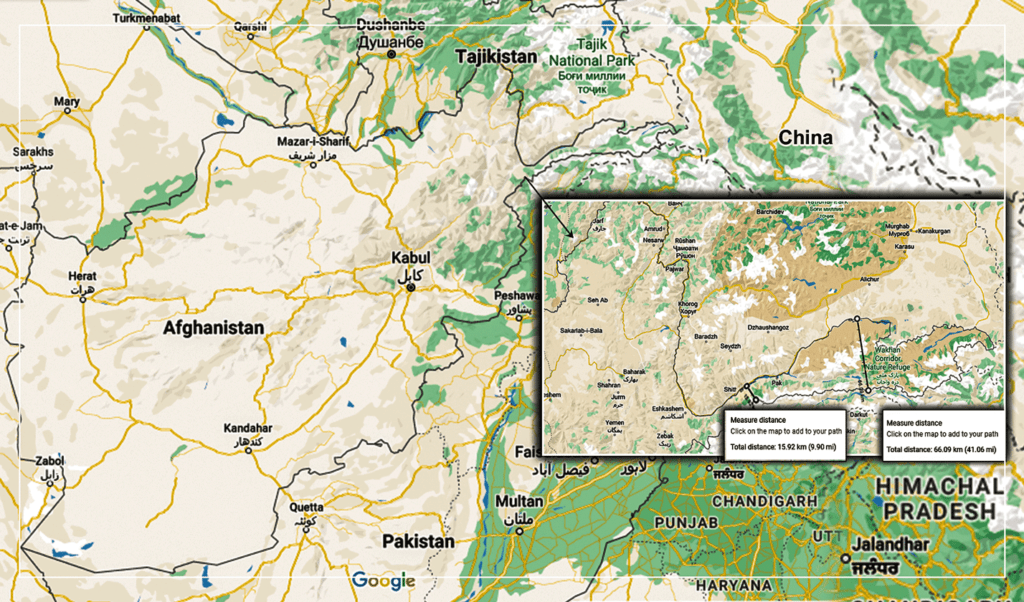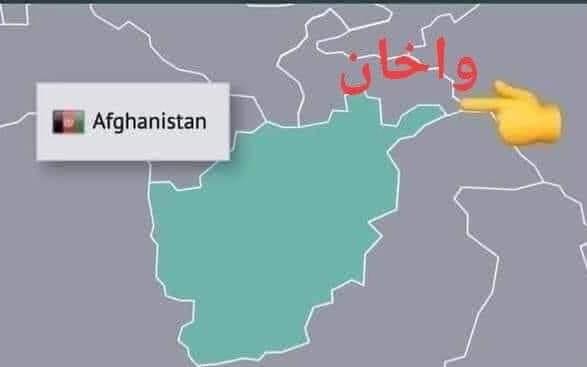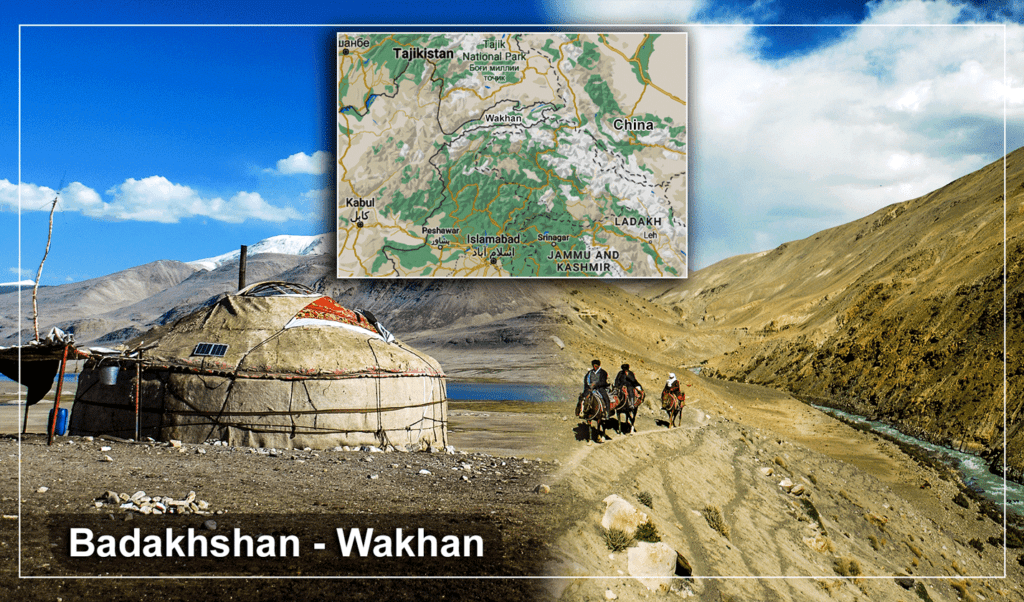KABUL (Pajhwok): Some sources have claimed Pakistan was trying to impose a long-term transit deal in Wakhan region on Afghanistan thus incumbent Afghan government should pay serious attention to the matter because passive political approach in such matters would grave consequences.
Former president Hamid Karzai’s chief of staff Abdul Karim Khurram’s tweet on Pakistan’s intention regarding the imposition of a new Wakhan Corridor policy has triggered a heated debate.
On July 22, Khurram wrote on his Twitter handle that Pakistan had renewed its demand for the construction of a transit road via Wakhan for trade with Tajikistan.
Some sources urged the government to pay serious attention to Wakhan corridor because passive politics in this regard may inflict short- and long-term losses on Afghanistan.
Zabihullah Mujahid, spokesman for the interim government, reacting to such statements, said: “No discussion has taken place on the issue. There will be no compromise even on an inch of Afghanistan’s territory”
Some former government figures, who expressed concerns in this regard, believed the Taliban administration also followed their policy, he added. “Currently, no one can give Afghanistan the evil eye.”
Wakhan
Wakhan is a far-flung district of Badakhshan province — a mountainous region in the heart of Asia and northeastern Afghanistan. Wakhan is surrounded by the Hindukush mountain range to the west and by Karakorum mountains to the south.

Wakhan is a narrow strip touching China in the northeast, Pakistan in the south and Tajikistan in the north. The high-altitude region, mostly packed by snow, connects Central and South Asia.
The Amu River is located in the Wakhan region. Afghanistan has a 96 kilometres undisputed border with China in the northeast.
Pakistan out to impose long-term transit deal on Afghanistan
Dr. Yar Mohammad Taraki wrote in an article for Pajhwok a year ago that Afghanistan is situated between two major Belt and road Initiative (BRI) and CPEC, multi-billion dollar Chinese projects, routes — one in Pakistan and another in Central Asia. Badakhshan’s Wakhan and Eshakism districts are the nearest areas to connect these two routes.
The article says Pakistan’s responsibility is confined to handling transit issues. Because of its worsening economic condition, Pakistan is interested in using the Wakhan route for the export and import of goods and services.

Taraki wrote that Pakistan was not interested in connecting BRI routes through Wakhan to dispatch Chinese products to Gulf countries and its own goods and services to Russia and Central Asian states.
Connecting BRI routes in Wakhan may benefit Afghanistan, which is supposed to take the initiative to ensure the protection of its national interest.
Kabul University Teacher Ustad Massoud wrote on his Facebook page that by using Wakhan, Pakistan will emerge as a brifge between Central Asia and South Asia and Afghanistan would lose its importance as a link between the two regions.
“Afghanistan’s strategic location, which is an asset, would transit to Pakistan. Therefore, this scheme should be rejected out of hand.”

Afghanistan embassy in Tajikistan
Afghanistan’s mission in Dushanbe, the capital of Tajikistan, sent a letter to the Ministry of Foreign Affairs in July 2014.
The letter, whose copy is available with Pajhwok, reads: “Pakistan is trying to create instability in the region by using terrorism, drugs and mafia groups as a policy tool.”
The letter quoted the Pakistani ambassador in Dushanbe as saying that former prime minister Nawaz Sharif and the Tajikistan president had agreed that the Wakhan corridor should be built with the support of Afghanistan. This will help Tajikistan gain access to warm waters, they agreed.
The letter said according to research, a 10 kilometres tunnel in Wakhan, which will cost $24 million, will help connect Tajikistan with the Gwadar Port in Balochistan and Pakistan with Central Asia.

Why is India impeding the corridor?
Two Pakistani researchers, Mohammad Munir and Mohammad Shafiq, wrote in a joint research paper published about two years ago about some of the challenges facing the construction of the Wakhan corridor.
The paper reads: “There are various challenges in reviving the Wakhan corridor plan. Firstly, the terrain is very difficult in terms of building road infrastructure and would require a huge investment. Secondly, China is reluctant about building Wakhan corridor due to the issue of terrorism. Thirdly, India as per its previous practice of opposing CPEC, may feel concerned as the outflanking manoeuvre of opening up in the Wakhan corridor will further integrate Afghanistan with China and Pakistan.”
“India is spreading propaganda to tarnish the image of China among the Afghans. Former Indian army chief Gen. VK Singh has termed China’s role in the region as an outflanking move. He added that “India risks losing the influence it has in Afghanistan because of a China-Pakistan link that is getting stronger and is seen in evidence here
“India can hire the services of terrorists like the IS to damage Pakistan and Chinese interest in and around Wakhan. The Indian secret service, RAW is very active in Afghanistan. At least 13 IS fighters from India were killed when the US dropped the mother of all bombs on a cave complex in the Tora Bora mountain in Nangarhar province.”
According to the ex-general, India realised the importance of Wakhan long before. It renovated the Farkhar airbase in Tajikistan at a cost of 350 million rupees in 2007 to keep watch on moves by China and Pakistan in the region. It extended the runway so that its jet fighters could land at the base.
India has also constructed three hangers at the Farkhar base, a strategic investment that has given India an exceptional watch tower. But India can no longer base its fighters and helicopters there because of Russian pressures, he added.
Sayed Massoud, lecturer at Economics Faculty of Kabul University, said India would be severely affected from a rivalry point of view if the Wakhan corridor was constructed by Pakistan. He believed Pakistan will thus monopolise Central Asia’s massive market.
Analysts want govt to probe the issue
Two days ago, former deputy minister of border and tribal affairs Dr. Fraidon Barakzai offered the government some suggestions in an article on his Facebook page.
He said the common point among China, Tajikistan and Afghanistan in the Wakhan region — also called Paul Shevkovskova — had been accepted by the three sides and no one could occupy it.
He recalled the border point was repainted annually in the past with coordination of technical groups from the two countries. But the caretaker government has now formed an emergency committee to visit these border points and share details with leaders.
According to Barakzai, the government should assure the people the Wakhan border marks — which have been in place for 58 years — will be preserved as a “national honor”. Chine should be convinced that both countries would respect each other’s territorial integrity as a red line, he suggested.
Ghulam Haidar Khan, a tribal leader from Faizabad, told Pajhwok he had visited the border in Khan 40 days ago. He said Afghan border forces were stationed there. But Pakistan had built a fort in the border area called Broghel, 10 kilometres from the Afghan territory, he said, adding the facility had been destroyed by Afghan forces.
He revealed a small amount of Afghanistan’s water flowing into Pakistan in this area had also been stopped.
Political analyst Tariq Farhadi opined if Pakistan sought a transit route to Central Asia through Wakhan, there was no problem. But the rumors about Pakistan’s efforts to grab the strip amounted to a violation of international law and the government should be careful in this regard, he said.
Farhadi opined Pakistan had a strong desire, but there should be talks with it on opening the transit route. If the government in Kabul remained weak, he warned, Pakistan might try to occupy the region — something that would create another issue.
Sediq Wafa, professor at the Faculty of Economics of Kabul University, wrote on his Facebook that this evil intention of Pakistan should be exposed to the people.
According to him, this step cannot be taken until political parties — both inside and outside the country — civil society and political leaders stopped internecine bickering.
He remarked: “We often promise to strengthen Afghanistan’s national sovereignty, territorial integrity and maintain our independence. But we must prove that we are honest in our statements.”
Pajhwok tried to get the view of Pakistan’s Foreign Office on the issue, but it spokesman did not respond.
nh/sa/mud







GET IN TOUCH
NEWSLETTER
SUGGEST A STORY
PAJHWOK MOBILE APP